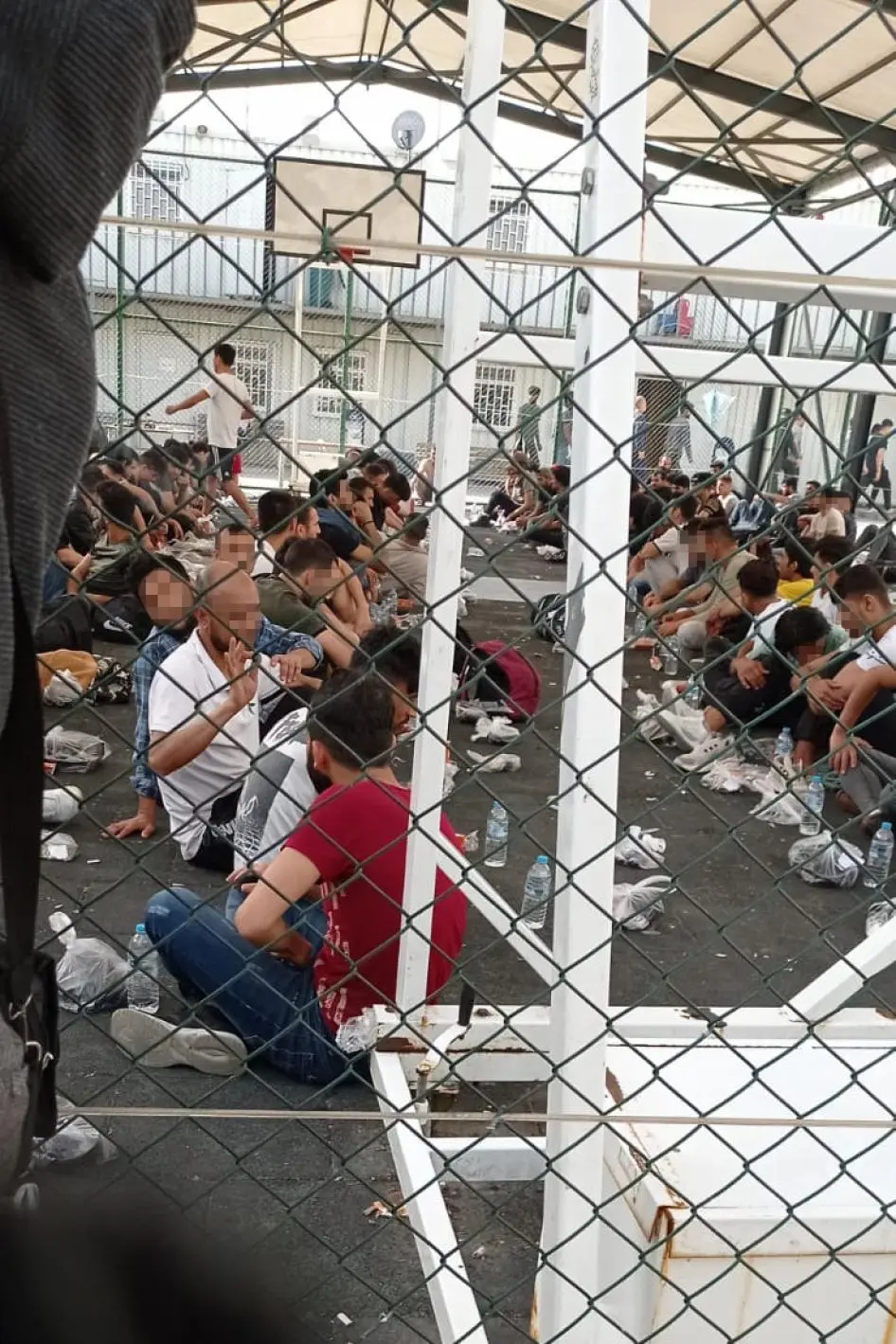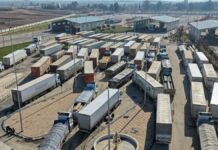
The Turkish authorities have detained 150 Syrian families in Kayseri province, preparing them for deportation to Syria, a move that has drawn sharp criticism from human rights organizations. The head of the Mazlumder Human Rights Association, Ahmed Tas, highlighted the dire conditions at the detention center, where severe overcrowding has pushed the number of detainees to 350, including children and infants.
“The detainees should not be deported without trial or sent to countries they do not want to go to,” Tas tweeted. “Treating them humanely is our duty as a state.” He emphasized that individuals proven to have committed crimes should be deported following a court decision, but torturing and ignoring legal structures is inappropriate for Turkey.
Tas called on the Turkish authorities to respect the law and treat migrants and refugees humanely, urging them to refrain from forcibly deporting these families without a fair trial or their consent to return to Syria. This plea comes in the wake of violence in Kayseri, where Turkish citizens have attacked Syrian properties, burning shops, smashing cars, and throwing stones at homes, marking the most violent incidents against Syrians in Turkey since the start of the refugee wave.
Seven Syrian civil society organizations have condemned these actions and held European Union (EU) countries partly responsible for the ongoing violations against Syrian refugees in Turkey. In a joint statement, they cited the 2016 European-Turkish agreement, which saw Turkey receiving 6.4 billion euros to curb the flow of migrants to Europe, a sum that increased to 9.4 billion euros by 2023. The organizations argue that the EU’s portrayal of Turkey as a “safe country for Syrian refugees” is misleading, given the increasing risks of forced returns to Syria.
The organizations asserted that Turkey’s deportation practices violate the principle of non-refoulement, which prohibits returning refugees to places where their lives are at risk. Despite Turkish President Erdogan’s promises to create “safe zones” in Syrian territories under Turkish control, numerous reports have documented ongoing abuses against Syrians in these areas, including arbitrary detention, conflict-related violence, and inhumane treatment during detention.
The EU’s lack of response to these violations has been criticized, with civil society repeatedly warning against Turkey’s flagrant disregard for international law. The joint statement called on the EU to impose sanctions on Turkish political figures involved in hate speech against Syrian refugees and to reassess Turkey’s status as a safe third country. They also recommended freezing financial contributions to Turkey until it halts all deportations of Syrian refugees, even to so-called “safe areas.”
For Syrians forcibly returned to northern Syria, the challenges are significant. A survey by the Syria Response Coordinators team, involving 17,643 recent arrivals, highlighted urgent needs such as secure housing, with 96% of expatriate families lacking shelter and facing exorbitant rental prices.
Additionally, 83% called for more hospitals and medical points, especially in remote areas. Employment is a critical need, with 94% of respondents requiring job opportunities to secure new income sources. Water access is another pressing issue, as 78% urged for increased operating hours of water stations and the reactivation of non-operational ones.
Bread production and affordability are also issues with 66% emphasizing the need to boost bakery output and reduce bread prices. Lastly, 71% of respondents highlighted the necessity to renovate schools and educational facilities to accommodate more children.
Despite these pressing needs, the overall economic conditions in northwestern Syria remain dire. A previous survey showed that most residents earn less than $50 per month, with poverty and unemployment rates climbing and humanitarian conditions worsening.
The continuous forced deportations and the volatile conditions in Syria underscore the precarious situation for Syrian refugees. Humanitarian organizations and civil society groups continue to call for immediate international action to address these ongoing human rights violations and to ensure the safety and dignity of all refugees.








